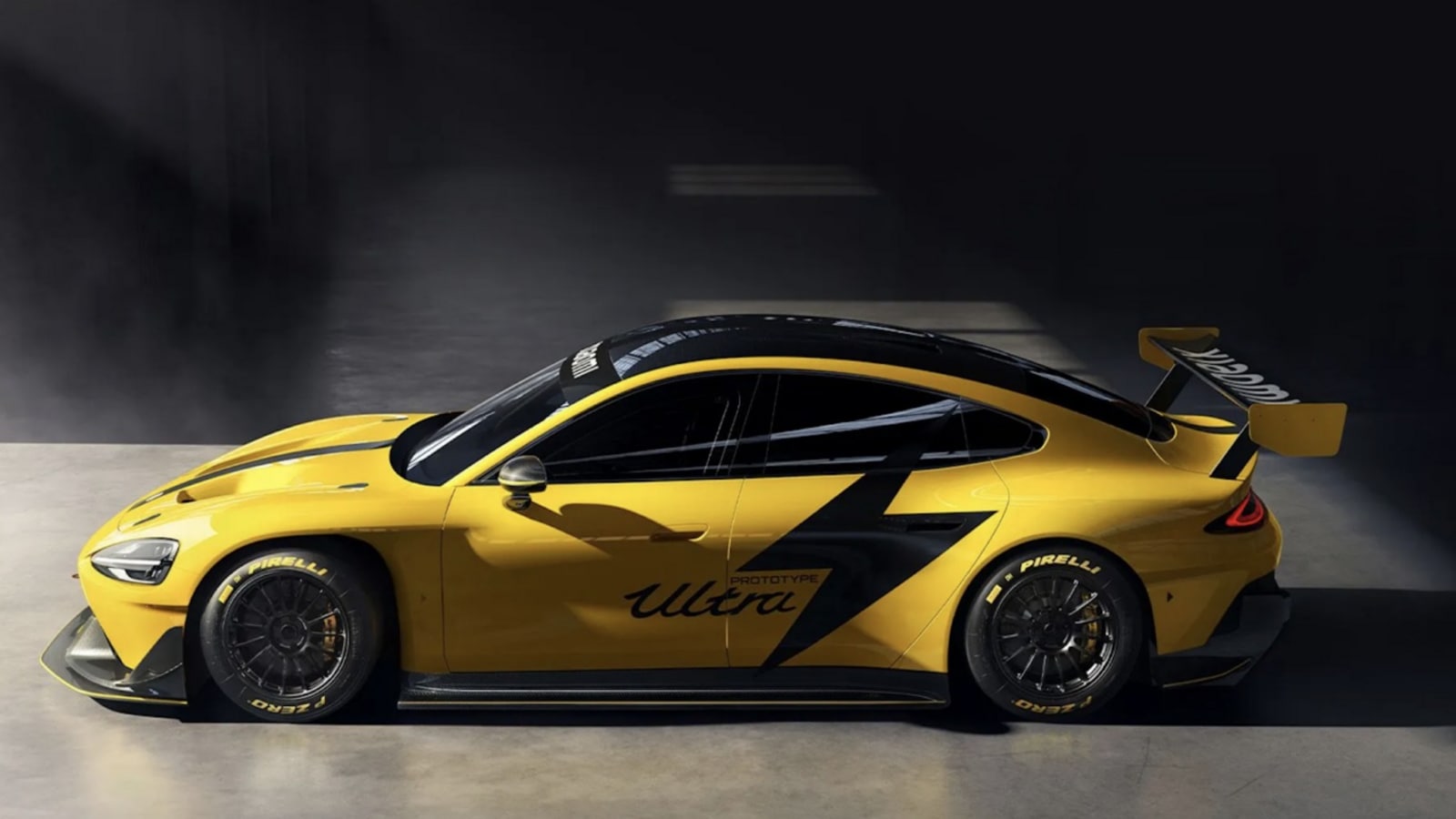At the heart of the Xiaomi SU7 Ultra lies its tri-motor setup, comprising two Xiaomi’s flagship V8s and one V6s electric motors. This potent combinati
…
Xiaomi, a prominent player in the smartphone market, has ventured into the electric vehicle sector with the SU7 Ultra. Positioned as a direct challenge to high-performance electric vehicles like the Porsche Taycan and Tesla Model S Plaid, the Xiaomi SU7 Ultra is aimed to offer quick acceleration, cutting-edge technology and a potential Nurburgring lap record.
At the heart of the Xiaomi SU7 Ultra lies its tri-motor setup, comprising two Xiaomi’s flagship V8s and one V6s electric motors. This potent combination delivers 1527 bhp, dwarfing the output of even the most powerful Porsche Taycan.
The result is quick acceleration figures: 0-100 kmph in a claimed 1.97 seconds and a top speed exceeding 350 kmph. To put this into perspective, the Xiaomi SU7 Ultra can reach 200 kmph in 5.96 seconds, a time that many supercars would envy.
(Also read: SU7, first-ever car from Xiaomi, showcased in India. Will it launch here?)
Xiaomi further claims the secret to these extraordinary performance figures lies in the innovative Qilin II battery, co-developed with CATL. This high-power battery pack can discharge a 1330kW, providing the necessary energy to feed the three electric motors. The battery’s 897-volt architecture also contributes to the car’s rapid charging capabilities.
Lightweight design and aerodynamics
To complement the power, the Xiaomi SU7 Ultra boasts an aggressive weight reduction programme. Extensive use of carbon fibre for body panels and other components has shaved off over 500 kgs compared to the standard Xiaomo SU7. The focus on weight savings extends to the interior, where air conditioning has been removed to enhance performance.
Aerodynamics play a crucial role in high-speed performance, and the Xiaomi SU7 Ultra doesn’t disappoint. The car features an aggressive body kit with a prominent rear wing, front splitter, and diffuser, generating an impressive 2145 kgs of downforce at 350 kmph. This level of downforce is comparable to that of dedicated hypercars, highlighting Xiaomi’s commitment to engineering excellence.
A benchmark for electric performance
Xiaomi has set its sights on the Nurburgring lap record, aiming to dethrone established performance benchmarks like the Hyundai Ioniq 5 N, Tesla Model S Plaid, and Porsche Taycan Turbo GT. The company has also identified even more ambitious targets, including the Rimac Nevera, Nio EP9, Lotus Evija X, and VW ID.R.
(Also read: Xiaomi plans to launch this Ferrari-inspired electric SUV to rival Tesla Model Y)
While the Xiaomi SU7 Ultra prototype is currently undergoing testing, a production version is planned for 2025. However, Xiaomi has confirmed that the car will not be exported outside of China for at least two to three years.
First Published Date: 22 Jul 2024, 19:50 PM IST

